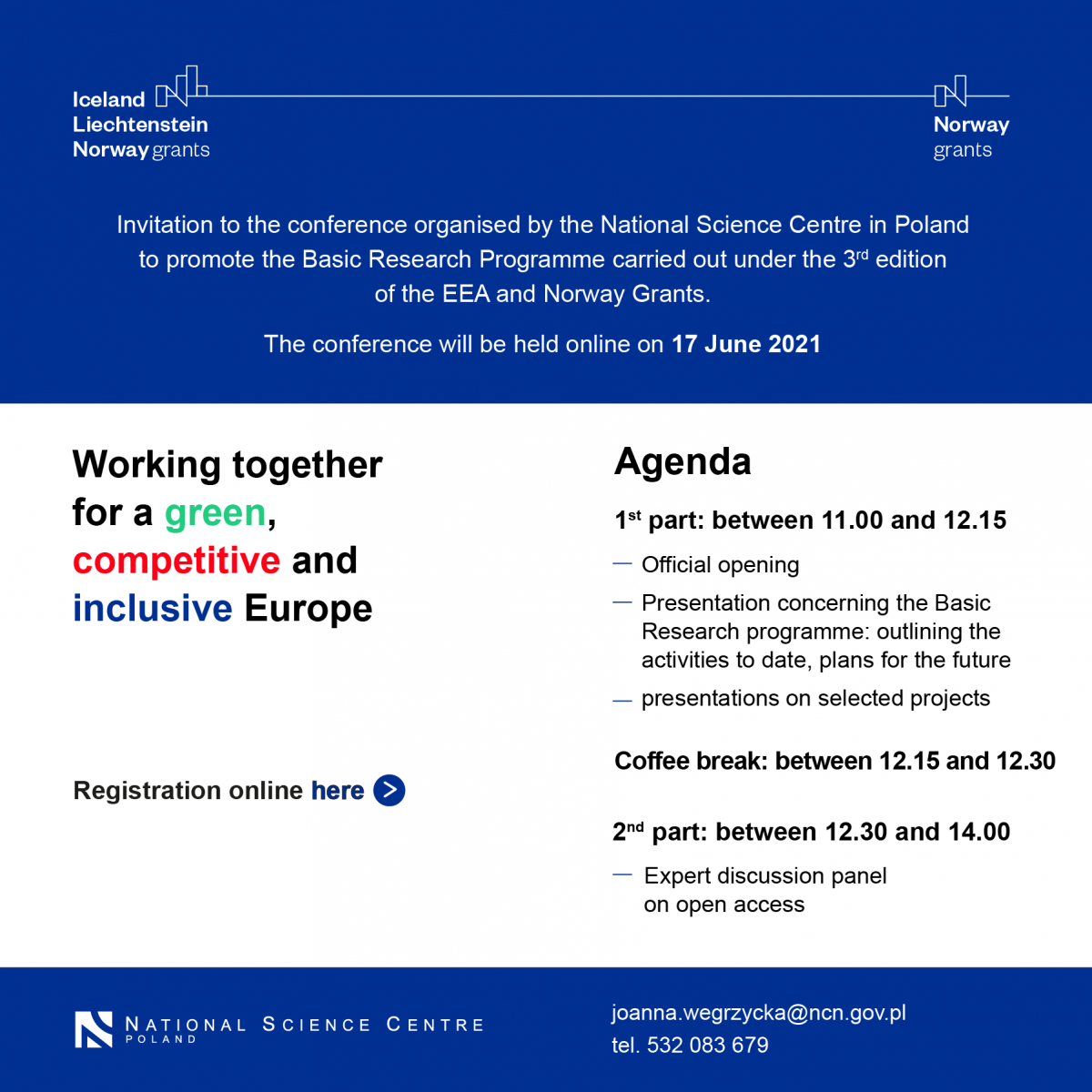Is it true that in the early history of the Earth, over 3.6 billion years ago, Antarctica, Greenland and Labrador formed a part of a single supercontinent? This theory is investigated by Prof. Monika Kusiak from the Institute of Geophysics, Polish Academy of Sciences, author of the project “Poles together – missing links between Arctic and Antarctic early Earth records” funded under the GRIEG call. Prof. Kusiak’s project will be presented at the conference promoting the Basic Research Programme on 17 June 2021.
In the first part of the conference starting at 11 a.m., the following projects will also be presented:
- “Polish and Norwegian language and world knowledge development in mono- and multilingual children” by Dr hab. Ewa Maria Haman from the University of Warsaw and
- “Investigation into the mechanism of regulation of nicotinic acetylcholine receptors” by Dr Ákos Nemecz from the Nicolaus Copernicus University in Toruń.
The second part (between 12.30 p.m. and 2 p.m.) will include an expert panel discussion on open access with the participation of representatives of Polish and foreign research community. The full list of speakers is available at https://ncn.wydarzeniaonline.pl/speakers/. Moreover, a Q&A session will be held. You can register to the conference here.
The first two calls (GRIEG and IdeaLab) were launched in June 2019 and the programme will come to an end in 2024. “We are ending a certain stage and entering a period of mature project implementation”, says Marzena Oliwkiewicz-Miklasińska, PhD, head of the Norway Fund Team at the National Science Centre.
The objective of the GRIEG call is to strengthen the Polish-Norwegian research cooperation, support early-stage researchers and build a positive image of science among people at large. The call covers all research domains, with particular focus on polar research and research in social sciences.
IdeaLab is a call for research projects carried out by research teams comprising at least one Polish partner and at least one partner from Norway, Iceland or Lichtenstein. The topics covered by the call concern challenges arising from processes, such as globalisation, technological change, issues of environment and climate change, demographic change, major waves of migration and geopolitical instability.
POLS is a Small Grant Scheme aimed at researchers from all over the world who intend to conduct their research in Poland. “The internationalisation of Polish science is still insufficient, therefore not many people apply for European grants as compared to mature EU member states (low success rate). POLS can change it”, says Ms Oliwkiewicz-Miklasińska.
28 projects are funded under the GRIEG call, 3 projects under the IdeaLab call and 39 projects under the POLS call. Proposals submitted under the calls have been reviewed by international research teams.
For more information on the calls and call winners, go to: https://www.ncn.gov.pl/eeanorwaygrants/calls

